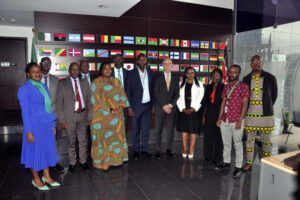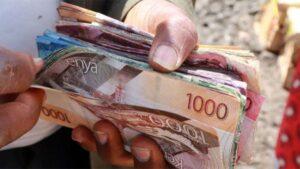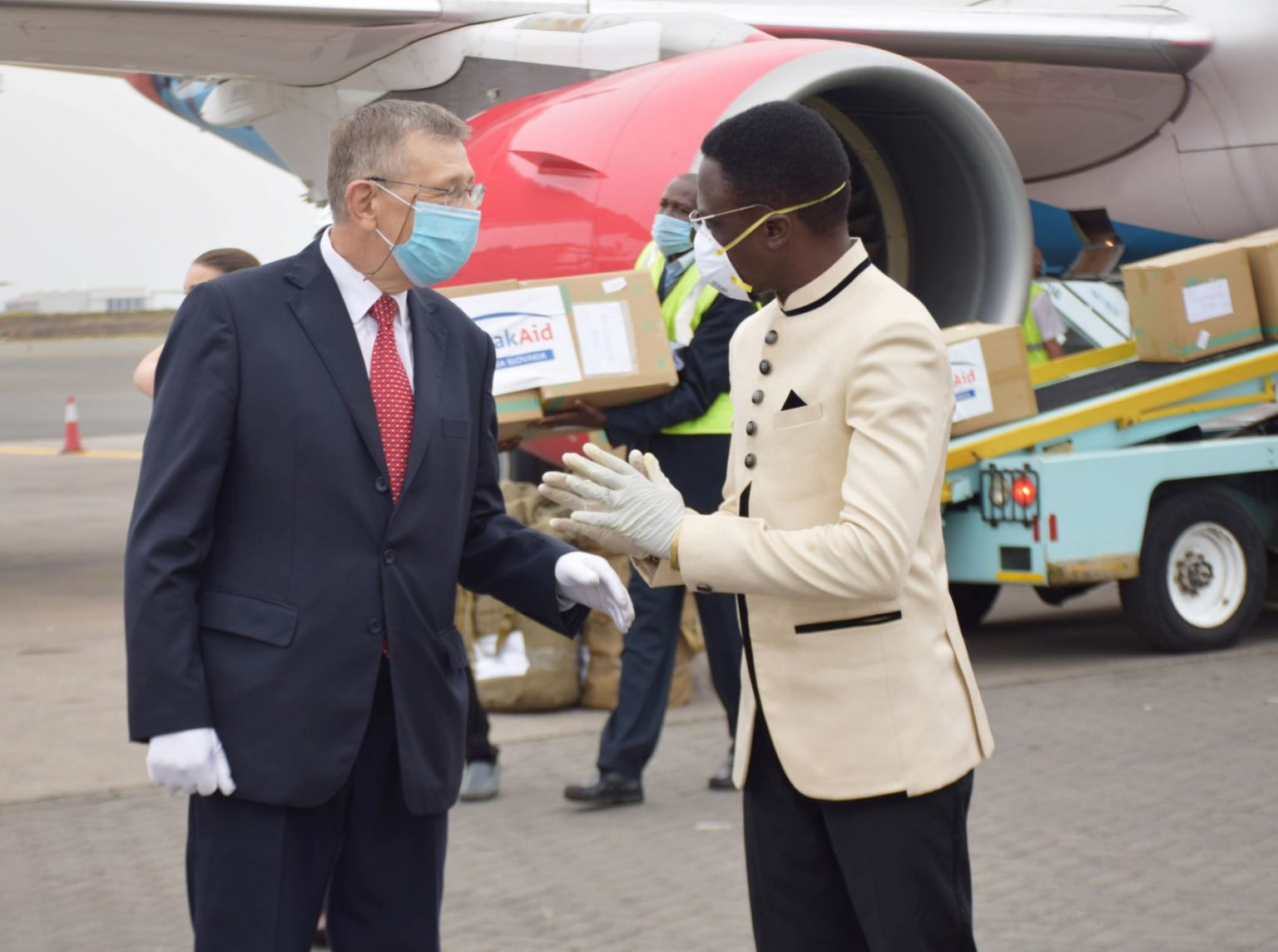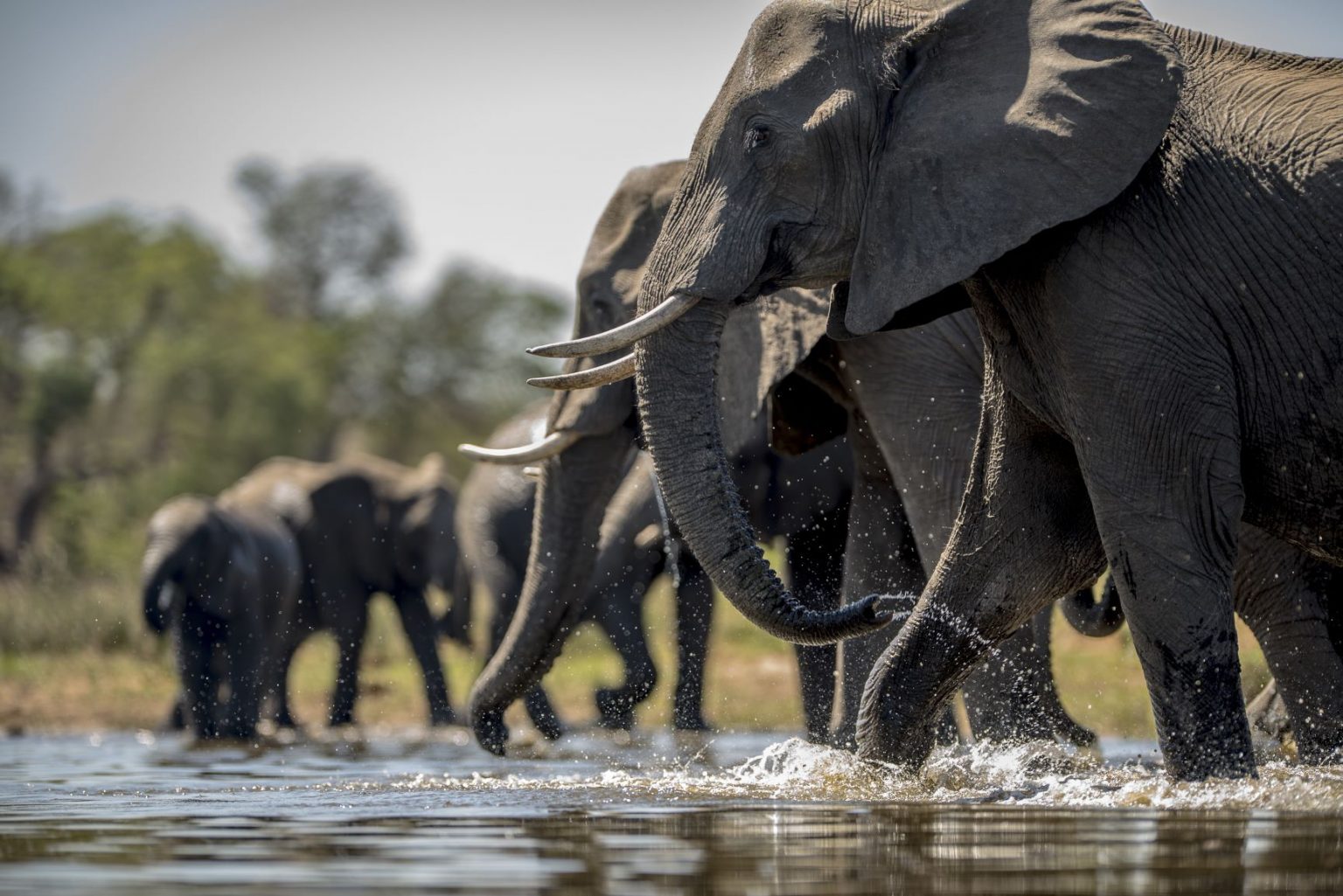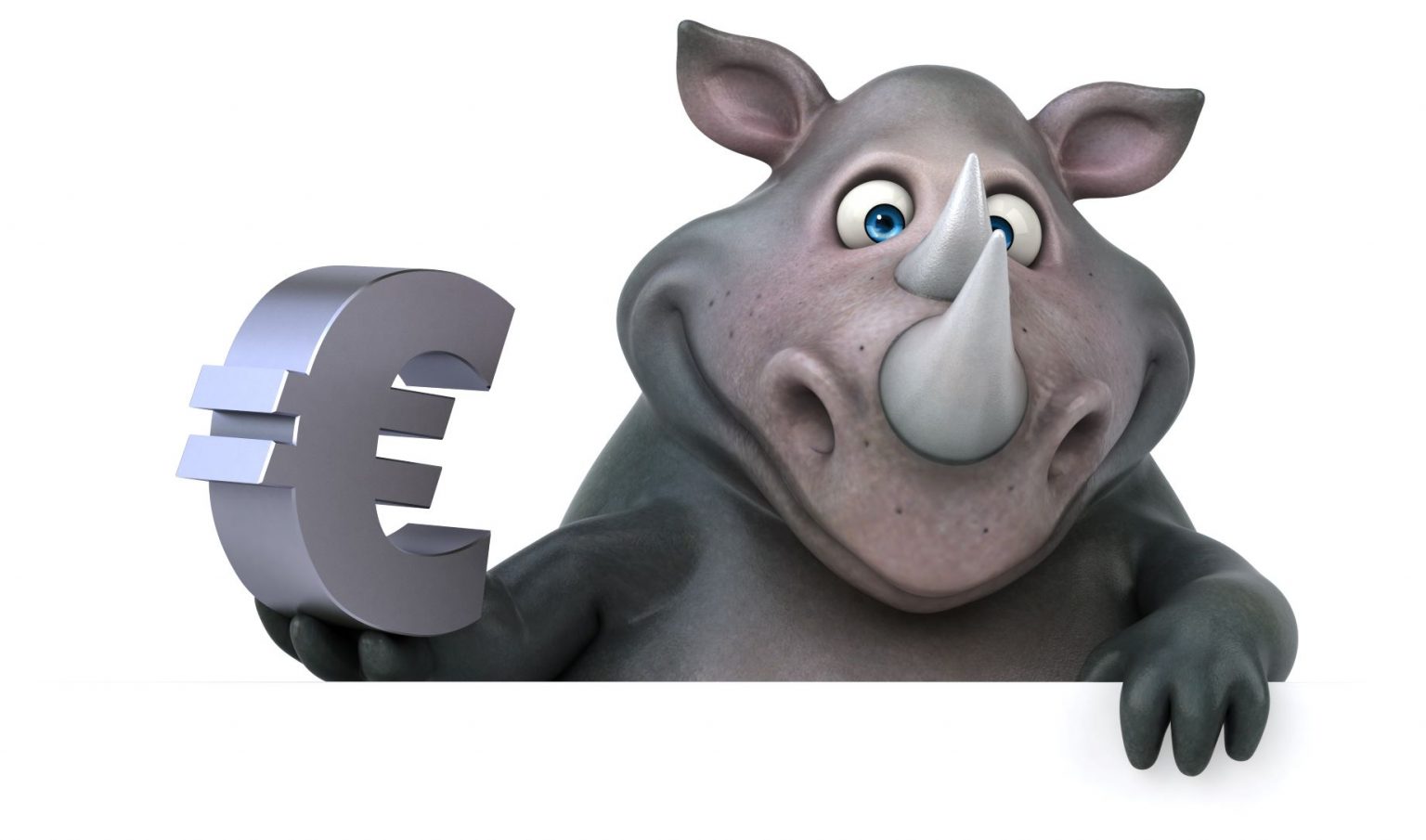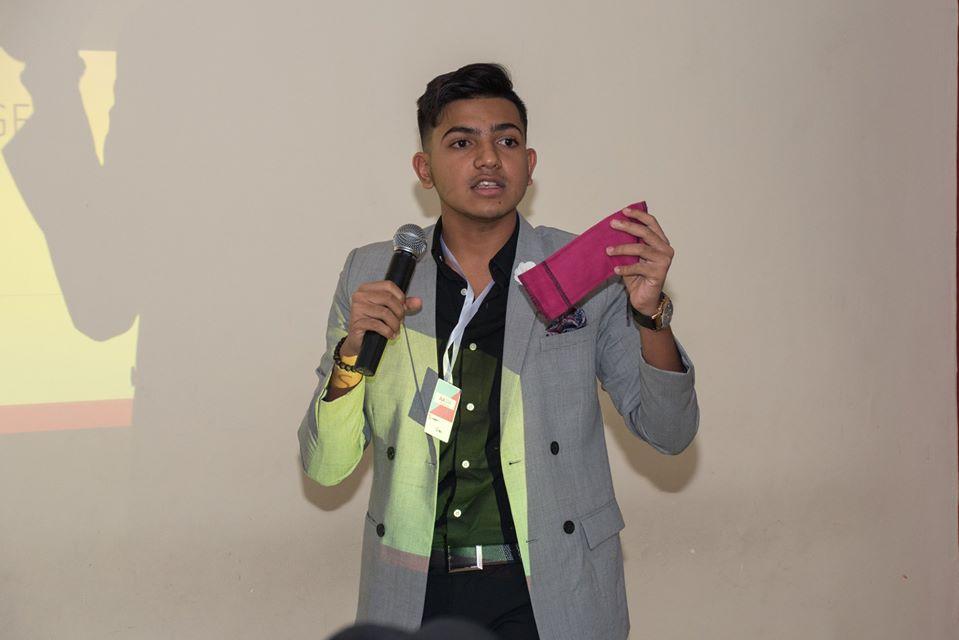- Kenyan Farmers Receive $2M Boost from Africa Fertiliser Financing Mechanism
- Brace for High Interest Rates for a Longer Period World Bank Warns Kenya
- Kenya-Ethiopia Trade Relations: Legislators Advocate for Policy Alignment to Boost Ties
- Visualising the state of debt in Africa 2024
- Abu Dhabi radiates optimism as over 300 startups join AIM Congress 2024
- TLcom Capital Raises $154 million in Funding to Boost Its African Growth
- Africa’s $824Bn debt, resource-backed opaque loans slowing growth — AfDB
- LB Investment brings $1.2 trillion portfolio display to AIM Congress spotlight
Author: Kimani Chege
Of the many brands and companies present in the European country of Slovak, ESET stands out rather brightly. The Slovak software company is known for its highly-reliable anti-virus technologies such as the NOD32, Smart Security or their smartphone security software. Founded in Bratislava decades ago, the company has been able to make in-roads in most parts of the world and now has a presence in Africa.
In January 2019, the Slovak Republic Ambassador to Kenya, Frantisek Dlhopolcek paid a courtesy visit to then Cabinet Secretary of the National Treasury, Henry Rotich where they signed an agreement on development cooperation between the two countries and promote trade and development.
With such an agreement, companies like ESET took advantage of the opportunities presented in the East African region to set base in Kenya. In the period of operation, ESET is looking at how it can capitalize on the changing cybersecurity needs of …
On 12th August, the world marked ‘elephant day’, marking key achievements in preserving the lives of the world’s largest land animal which for years has faced the extreme danger of extinction. However, when this day was being marked, unlike in previous years, there was a positive talk of how the elephant population has stabilized.
The majestic animal’s population has shrunk significantly over the past few decades. For example, in Africa, there are only about 415,000 elephants remaining; in 1989, there were 600,000, and in 1979, there were 1.3 million. Poachers in Africa have illegally killed an estimated 110,000 elephants over the past decade — about one-quarter of what Africa’s elephant population was 10 years ago.
However, with global efforts and a dwindling market for elephant tusks, there is a more focus on how to manage the population. In fact, there are regions in Africa that have consistently registered an increase …
Rwanda is moving to cement its position as the financial capital of Africa by drawing in different investments and partnerships. Such partnerships include developing Kigali as a financial hub through the Kigali International Finance Centre, a hub supported by government-owned Rwanda Finance.
CDC Group, the UK’s development finance institution and impact investor, in June signed a partnership agreement with Rwanda Finance to support the development of a new international financial capital for Africa.
The Kigali International Financial Center (KIFC) is intended to be a world-class financial hub, designed to promote inward investment and the creation of thousands of highly skilled financial sector jobs for the benefit of Rwanda and the African continent.
This partnership will see CDC provide the expertise that will help shape a strong legal and regulatory framework that is designed to attract institutional investors seeking to finance African businesses through a world-class financial center.
Rwanda Finance was …
In February 2020, just weeks after Kenya and the US had commenced talks to set up a trade deal, another announcement was being made. The US Department of Agriculture announced that Kenya will start receiving wheat from Idaho, Oregon, and Washington State after the states addressed plant health concerns.
The announcement ensured that a trade barrier that existed prohibiting US wheat exports was lifted. It allowed US wheat growers in the Pacific Northwest access to Kenya’s wheat market for the first time in over a decade after the US-Kenya Trade and Investment Working Group adopted a phytosanitary protocol.
Kenya’s domestic wheat production only meets around 10 percent of its annual demand. According to KNBS, Kenyans consume an estimated one million tonnes of wheat annually hence the country faces a deficit of more than 750,000 tonnes.
The country sources much of its wheat import volume from nearby suppliers—Tanzania, South Africa, Russia, …
American multinational holding company Berkshire Hathaway, owned by Warren Buffett last week announced the acquisition of a certain percentage of Canadian gold mining company, Barrick Gold.
The deal saw the shares of Barrick Gold soar by 12% after Warren Buffett’s firm bought a stake in the company. Berkshire Hathaway purchased a 20.9 million-share stake in Barrick Gold, valued at about $564m.
However, as this deal was being announced, another deal was being activated in East Africa. Shanta Gold, the London AIM-listed miner announced that it has completed the acquisition of Canadian miner Barrick Gold’s assets in Kenya at a cost of Sh1.4 billion from three subsidiaries of Barrick.
The three subsidiaries include Acacia Exploration (Kenya) Ltd. Approximately US$55 m invested in exploration activities across West Kenya since 2010 by Acacia Mining Plc and previous owners.
Acacia joined the Kenyan market in 2012 after acquiring Aviva Mining Kenya Ltd. It acquired …
The onset of Covid-19 brought numerous economic challenges to the region. Significantly affected are the barometers of the economy which are mainly the securities markets as well as money markets. The manner in which these two react clearly depicts where the economy is headed. When Covid-19 descended on the region, the regional markets were the first ones to show, responding to the decline of global shares in known markets like New York Stock Exchange, London Stock Exchange and similar markets in Europe, Asia and Africa.
In East Africa, the main markets are Nairobi Securities Exchange (NSE), Dar es Salaam Stock Exchange (DSE), Uganda Stock Exchange (USE) and Rwanda Stock Exchange (RSE). The NSE and DSE are both automated while the USE and RSE are still manual using the open-outcry trading system. Unlike the other three Partner States, Uganda also has an over-the-c…
The dairy industry in East and Central Africa is a multi-billion-dollar business supporting millions of small to medium farmers as well as a vibrant retail and manufacturing value chain across the region. Dairy production plays an important role in supporting livelihoods and economies across East Africa.
According to the East and Southern Africa Dairy Association (ESADA), 12 billion litres of milk are produced in East Africa annually, accounting for 27.5% of the continent’s 2017 output.
Over 30 companies are involved in the processing and distributing milk including the region’s largest dairy processor Brookside Dairy, which has a market share of 40% in Kenya and the largest distribution and retail network in Uganda. Brookside is a powerful enterprise that boasts of Kenya’s first family on its board and controls a majority stake in Kenya’s processed milk. French dairy giant Danone is also a shareholder though it controls most of its …
With the effects of Covid-19 taking a toll on businesses across the globe, those operating in low income countries and specifically those in Africa have sought for more than finance to pull through.
Invest in Africa (IIA), a private sector-led initiative focused on growing local businesses and local content in Sub-Saharan Africa, has created a Covid-19 SME survival toolkit programme that helps SMEs overcome the potential damage to businesses caused by lockdowns and the ensuing economic shock.
The survival toolkit includes practical guides, solutions and recommendations to help African SMEs get through the many challenges the pandemic represents. It is also organizing a series of webinars under which SMEs can benefit from several industry advisors.
The entity has a curated list of online resources relevant to your business during this pandemic.
“Because the vast majority of businesses in Sub-Saharan Africa are SMEs, they also provide nearly all …
If there is one sector that receives great attention in Africa, then it must be the small and medium enterprises (SMEs) area. Over the years, governments and multilateral agencies have identified the great role played by the SMEs in providing jobs, services and contribution to domestic economies.
A National Economic Survey report by the Central Bank of Kenya (CBK) two years ago indicated that SMEs constitute 98 percent of all businesses in Kenya, create 30 percent of jobs annually as well as contribute 3 percent of the GDP.
The situation is similar in the rest of the continent as well as worldwide. According to World Bank, SMEs represent about 90 percent of businesses and more than 50 percent of employment worldwide. Formal SMEs contribute up to 40 percent of national income (GDP) in emerging economies. These numbers are significantly higher when informal SMEs are included.
SMEs are less likely …
It is not ordinary for a 20-year-old school graduate to have achieved so much in a short period. However, for Ziyaan Virji, he not only leads in philanthropic endeavours but also is developing a social enterprise that looks at the menstrual health of women.
For the last two years, Ziyan, a graduate of the Aga Khan Academy Mombasa, has been working closely with communities both in Kenya and Tanzania as well as using proceeds of the Princess Diana Award to push for the welfare of the less privileged while still maintaining a social enterprise.
At just 17, he founded the non-profit Affordable and Accessible Sanitation for Women (AASW). This came about as a personal project for his Middle Years Program (MYP), where his research led him to find out that barely 2% of school girls in urban areas in Tanzania could …
